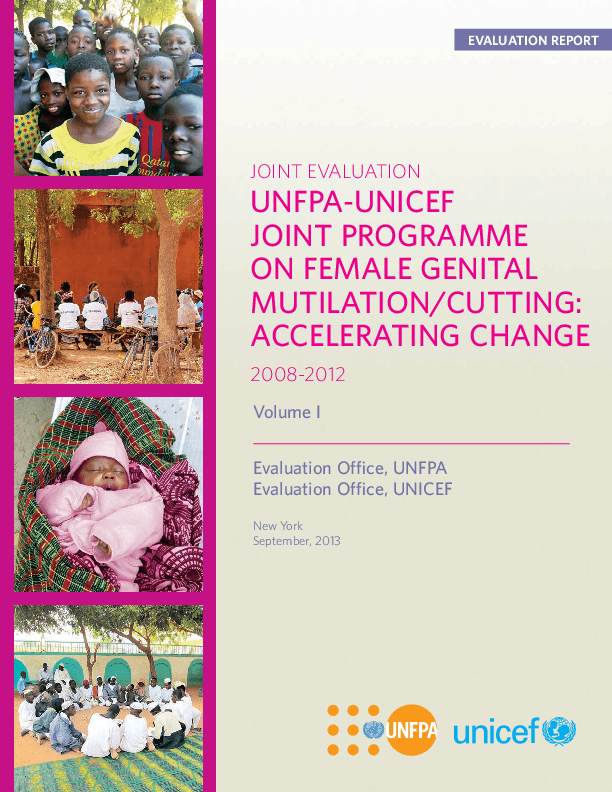
UNFPA-UNICEF Joint Evaluation of the UNFPA-UNICEF Joint Programme on Female Genital Mutilation/Cutting (FGM/C): Accelerating Change
Resource date: 01 Sep 2013

Resource date: 01 Sep 2013
The joint evaluation assesses the extent to which the UNFPA-UNICEF joint programme has accelerated the abandonment of FGM/C in 15 programme countries (2008-2012). The evaluation provides an opportunity to ensure accountability to donors and other stakeholders, and is also a useful learning exercise. The evaluation assesses the relevance, efficiency, sustainability and the effectiveness of the holistic and multi-sectoral approach adopted by UNFPA and UNICEF in their programme for the acceleration of the abandonment of FGM/C. Furthermore, it also assesses the quality of the coordination mechanisms that have been established at the global level and within countries to maximize the effectiveness of joint programme interventions. Finally, the evaluation provides recommendations for the future direction of the FGM/C policies and programmes and gives UNFPA and UNICEF insights into the successes and challenges in conducting joint programming.
The case studies presented below are independent assessments of the UNFPA-UNICEF joint programme support for the acceleration of the abandonment of the FGM/C in Kenya, Burkina Faso, Senegal and Sudan.
| Country Entry Date in the FGM/C Joint Programme | ||
|---|---|---|
| 2008 | 2009 | 2011 |
| 1. Djibouti | 9. Burkina Faso | 13. Eritrea |
| 2. Egypt | 10. Gambia | 14. Mali |
| 3. Ethiopia | 11. Uganda | 15. Mauritania |
| 4. Guinea | 12. Somalia | |
| 5. Guinea Bissau | ||
| 6. Kenya | ||
| 7. Senegal | ||
| 8. Sudan | ||